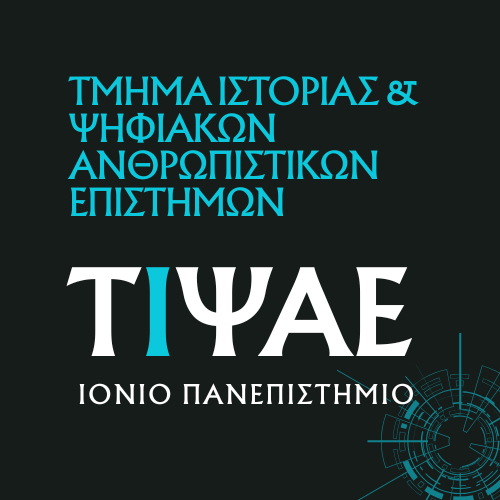INTODUCTION IN HISTORY OF MODERN HELLENISM
Teaching Staff: Tzakis Dionysios
Course Code: ΙΝΕ101
Course Type: Compulsory
Course Level: Undergraduate
Course Language: Greek
Delivery method: Lectures
Semester: 4th
ECTS: 5
E Class Page: https://opencourses.ionio.gr/courses/DHI113/
Curricula: Curriculum in History up to 2024-25, Curriculum in History and Digital Humanities from 2025
The course covers the period from mid-15th to early 19th c. and focuses on the making of a new and secular identity with regard to the Ancient Greeks (“Modern Hellenes”), instead of the traditional/religious self-determination (Greek-orthodox Christians /Romioi) which was permanently cultivated throughout the whole period by ottoman and ecclesiastical authorities. Within this context, the lectures examine the status of Romioi under ottoman administration; the social stratification and power relations among them; the ecclesiastical and local administrative institutions; the economic activities and trends and the growth of the Greek-speaking merchant communities in Europe. Special emphasis is given to the secularization of the intellectual life during 18th c. due to the spreading of Enlightenment’s ideas, as well as to the rivalries between traditional-ecclesiastical and modern scholars since the eve of 19th c.
At the end of the semester students will be able to identify, describe and analyze:
- The status of Romioi within the ottoman power relation system.
- Theirs social institutions as part of the ottoman administrative apparatus.
- The turning-point of 18th c. in economy, intellectual life and social stratification.
- The interrelationship between intellectual and socio-economic changes in the making of a new and secular identity with regard to ancient Greeks.
Week #1: Introduction.
Week #2: Romioi under ottoman rule.
Week #3: The Greek-Orthodox Church.
Week #4: The communal system.
Week #5: Armed Christians.
Week #6: Social stratification, elites and power relations.
Week #7: The Phanariotes: a distinguished social group.
Week #8: Economy: main features and trends.
Week #9: Merchant networks and communities.
Week #10: Secularization of intellectual life.
Week #11: Neo-Hellenic Enlightenment.
Week #12: The making of ‘New Hellenism’.
Week #13: Conclusions.
- Ιστορία του Ελληνικού Έθνους, τ. ΙΑ΄, Αθήνα, Εκδοτική Αθηνών, 1975.
- Ιστορία του Νέου Ελληνισμού 1770-2000, επιμ. Β. Παναγιωτόπουλος, τ. 1-2, Αθήνα 2003.
- Κ. Κωστής, ‘Τα κακομαθημένα παιδιά της Ιστορίας. Η διαμόρφωση του νεοελληνικού κράτους, 18ος-21ος αιώνας, Αθήνα, Πόλις, 2013.
- Δ. Παπασταματίου – Φ. Κοτζαγεώργης, Ιστορία του Νέου Ελληνισμού κατά τη διάρκεια της οθωμανικής πολιτικής κυριαρχίας, Αθήνα: Σύνδεσμος Ελληνικών Ακαδημαϊκών Βιβλιοθηκών, 2015, σ. 72-94 [ηλεκτρ. βιβλ., διαθέσιμο στο αποθετήριο Κάλλιπος: http://hdl.handle.net/11419/4726
- Π. Πιζάνιας, Η Ιστορία των Νέων Ελλήνων. Από το 1400c έως το 1820, Αθήνα: Εστία 2014.
The lectures are conducted in classroom (direct instructions) with the help of PowerPoint and are supported by printed and electronic material.
The benefits of the asynchronous e-learning platform of the Ionian University (Open eClass).
Written examination.
Back



